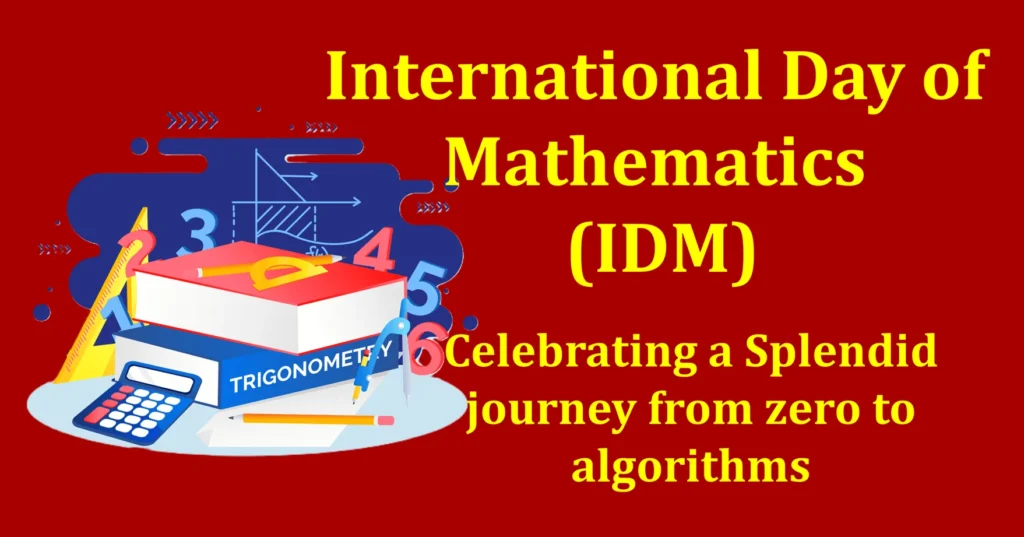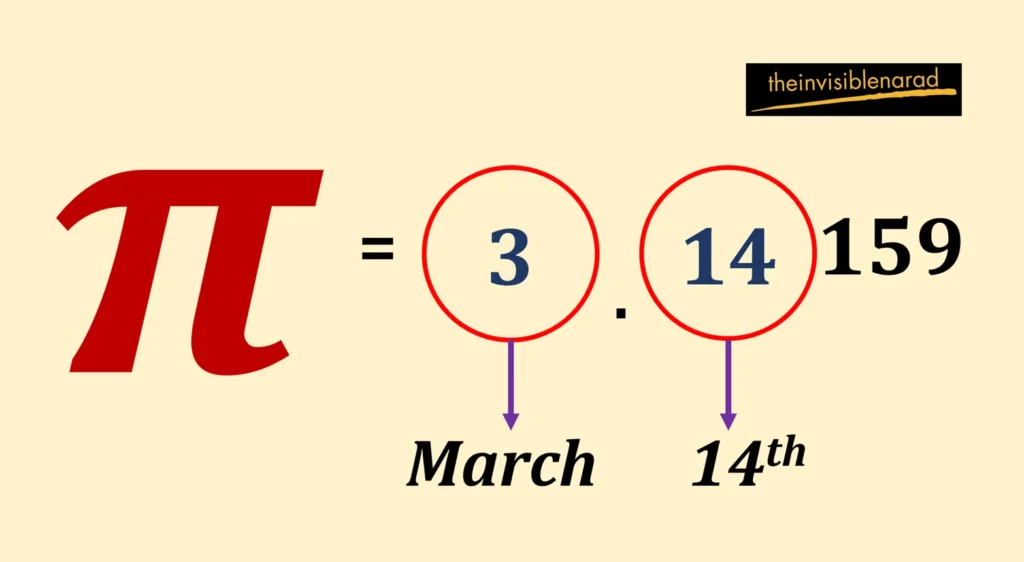
Introduction
Brief overview of the International Day of Mathematics
Every year on March 14th (3/14), the International Day of Mathematics is celebrated. This date is particularly significant in the mathematical community since it corresponds with the first three digits of the mathematical constant π (pi). Established by the International Mathematical Union (IMU) in 2019, IDM aims to highlight the importance and beauty of mathematics in our lives, as well as to promote awareness and appreciation of the subject globally.
Importance of celebrating mathematics globally
Mathematics is often regarded as the language of the universe, underlying everything from the natural sciences to technology, engineering, economics, and even art. It plays a crucial role in understanding the world around us and solving complex problems. By celebrating mathematics globally, we recognize its universal significance and its contributions to human progress and innovation. Moreover, celebrating mathematics fosters a culture of curiosity, critical thinking, and problem-solving skills, essential for addressing the challenges of the modern world.
Purpose of the blog post
The purpose of this blog post is to delve deeper into the significance of the International Day of Mathematics. Through exploration and discussion, we aim to highlight the importance of mathematics in society, showcase its beauty and diversity, and inspire readers to engage with mathematics in meaningful ways. By understanding the essence of IDM and its underlying message, we hope to ignite a sense of curiosity and appreciation for mathematics among our readers. Whether you’re a mathematics enthusiast, a student, an educator, or simply curious about the world of numbers, this blog post invites you to join us in celebrating the wonders of mathematics on this special day.
Understanding the International Day of Mathematics
Origins and history of IDM
The International Day of Mathematics was first proposed by the International Mathematical Union (IMU) in 2019 and was officially designated by UNESCO in December of the same year. The proposal aimed to create a platform to celebrate mathematics and its contributions to society on a global scale. Since then, it has been celebrated annually on March 14th, coinciding with the first three digits of the mathematical constant π (pi), which is approximately equal to 3.14. The initiative was met with enthusiasm from the mathematical community and has since gained recognition and participation worldwide.
Significance of the date (March 14th) and its relation to mathematics
March 14th holds special significance in the mathematical world due to its resemblance to the numerical representation of the mathematical constant π. A fundamental mathematical constant, pi (π), represents the ratio of a circle’s diameter to its circumference.

It is an irrational number, meaning it cannot be expressed as a finite decimal or fraction, and its decimal representation continues infinitely without repetition. The value of π is approximately 3.14159, making March 14th (3/14) an ideal date to celebrate mathematics and its universal language. The association with π serves as a reminder of the importance of mathematical constants and the elegance of mathematical principles in our everyday lives.
The theme of IDM 2024: “Playing with Math”
The theme of IDM 2024, “Playing with Math,” celebrates the interactive and imaginative exploration of mathematical concepts. Encouraging individuals of all ages to engage in playful activities, this theme emphasizes the joy and creativity inherent in mathematical play. Through puzzles, games, and hands-on experiments, participants can discover the beauty of mathematics in a fun and interactive manner. By embracing the spirit of exploration and discovery, IDM 2024 promotes mathematical literacy and engagement, making the subject accessible and enjoyable for everyone.
Moreover, playful interaction with mathematics fosters collaboration, communication, and community, as individuals come together to solve problems and share insights. By inspiring creativity and innovation, “Playing with Math” encourages individuals to think outside the box, explore new ideas, and push the boundaries of mathematical knowledge. Overall, the theme of IDM 2024 invites individuals to embark on a journey of discovery, where mathematical play becomes a catalyst for learning, exploration, and joyful exploration of the wonders of mathematics.
Exploring the Beauty of Mathematics
Mathematics as the language of the universe
Mathematics is often described as the universal language, a tool for understanding the fundamental laws governing the universe. From the precise movements of celestial bodies to the intricate patterns found in nature, mathematics provides a framework for describing and predicting the behavior of natural phenomena. Through mathematical abstraction and modeling, scientists and researchers can uncover hidden patterns, relationships, and underlying principles that govern the physical world. Whether it’s through the elegant equations of classical mechanics, the complex algorithms of quantum mechanics, or the intricate formulas of chaos theory, mathematics serves as a bridge between the observable and the abstract, allowing us to unravel the mysteries of the cosmos.

Applications of mathematics in various fields
The applications of mathematics extend far beyond the realm of science and academia, permeating virtually every aspect of human endeavor. In technology and engineering, mathematics plays a crucial role in designing and optimizing systems, from developing algorithms for artificial intelligence to designing efficient transportation networks.
In economics and finance, mathematical models help analyze market trends, assess risk, and optimize investment strategies. In medicine and healthcare, mathematical techniques are used for modeling diseases, analyzing medical data, and designing treatment protocols. The list goes on, illustrating the pervasive influence of mathematics in shaping our modern world.
Famous mathematical concepts, theorems, and discoveries
Mathematics is replete with timeless concepts, theorems, and discoveries that have shaped our understanding of the universe and revolutionized countless fields of study. From the ancient Greeks’ discovery of the Pythagorean theorem to Isaac Newton’s laws of motion and calculus, from Albert Einstein’s theory of relativity to the discovery of fractals and chaos theory, mathematics has continually pushed the boundaries of human knowledge and imagination.
Famous concepts such as Fermat’s Last Theorem, Gödel’s incompleteness theorems, and the Riemann Hypothesis continue to captivate mathematicians and inspire new avenues of research. These breakthroughs not only showcase the beauty and elegance of mathematics but also demonstrate its profound impact on our understanding of the world. Through exploration and discovery, mathematicians continue to unravel the mysteries of the universe, revealing the hidden harmony and order that lie beneath the surface.
Promoting Mathematical Literacy and Education
Importance of mathematical education
Mathematical education is fundamental to fostering critical thinking, problem-solving skills, and numerical literacy essential for navigating the complexities of the modern world. Beyond arithmetic calculations, mathematical education cultivates logical reasoning, abstract thinking, and analytical skills that are transferable to various fields and disciplines.
Moreover, a strong foundation in mathematics opens doors to diverse career opportunities in science, technology, engineering, finance, and beyond. By equipping individuals with mathematical literacy, we empower them to make informed decisions, engage with quantitative information, and contribute meaningfully to society.
Challenges in mathematics education globally
Despite its importance, mathematics education faces numerous challenges globally, ranging from inadequate resources and infrastructure to socio-economic disparities and cultural barriers. In many countries, access to quality mathematics education is limited, particularly in underserved communities and rural areas.
Additionally, there is a growing concern over declining interest and proficiency in mathematics among students, exacerbated by factors such as outdated pedagogical approaches, insufficient teacher training, and negative attitudes towards the subject. Gender and racial disparities further compound these challenges, with women and underrepresented groups often facing barriers to pursuing careers in STEM fields.
Initiatives and organizations working to promote mathematical literacy
Recognizing the need to address these challenges, numerous initiatives and organizations are actively working to promote mathematical literacy and education worldwide. These efforts encompass a wide range of activities, including curriculum development, teacher training programs, educational outreach initiatives, and advocacy campaigns. For example, organizations like the Global Math Project, the Mathematical Association of America (MAA), and the International Mathematical Union (IMU) collaborate with educators, policymakers, and communities to promote innovative teaching methods, develop resources, and organize events aimed at fostering a love for mathematics.
Additionally, online platforms and resources such as Khan Academy, Brilliant.org, and Math Overflow provide accessible and interactive learning opportunities for students of all ages. By leveraging technology, collaboration, and community engagement, these initiatives strive to make mathematics education more inclusive, engaging, and accessible to learners around the world.
Celebrating Diversity in Mathematics
Contributions of mathematicians from different cultures and backgrounds
Mathematics is a global endeavor, enriched by the diverse perspectives, traditions, and contributions of mathematicians from all corners of the world. Throughout history, mathematicians from diverse cultures and backgrounds have made significant contributions to the field, advancing our understanding of mathematical concepts and techniques.
From ancient civilizations such as the Babylonians, Egyptians, and Mayans to more recent pioneers like Al-Khwarizmi, Aryabhata, and Hypatia, mathematicians from different cultural traditions have left an indelible mark on the development of mathematics. Their insights, discoveries, and methodologies reflect the richness and diversity of human thought, illustrating the universality of mathematical ideas across cultures and civilizations.
Role of women and underrepresented groups in mathematics

Despite the historical underrepresentation of women and minority groups in mathematics, there is a growing recognition of their significant contributions to the field. From the groundbreaking work of Ada Lovelace, often regarded as the world’s first computer programmer, to the pioneering contributions of Emmy Noether in abstract algebra, women have played integral roles in shaping the landscape of mathematics.

Similarly, mathematicians from underrepresented groups, including racial and ethnic minorities, LGBTQ+ individuals, and individuals with disabilities, have made important contributions to mathematics, often overcoming significant barriers and challenges along the way. By highlighting their achievements and amplifying their voices, we celebrate the diversity of perspectives and experiences that enrich the mathematical community and inspire future generations of mathematicians.
Diversity of Mathematical ideas and approaches
Mathematics is a vast and diverse field encompassing a wide range of ideas, theories, and methodologies. From pure mathematics, focused on abstract concepts and theoretical frameworks, to applied mathematics, aimed at solving real-world problems and developing practical solutions, there is a multitude of approaches to exploring mathematical phenomena.
Moreover, mathematics intersects with other disciplines, including physics, computer science, biology, and economics, giving rise to interdisciplinary areas of study such as mathematical biology, computational finance, and statistical physics. By celebrating the diversity of mathematical ideas and approaches, we acknowledge the breadth and depth of the mathematical enterprise, embracing the plurality of perspectives and methodologies that contribute to its richness and vitality.
Engaging in Mathematical Activities
Celebrating IDM individually or in communities
- Organize a mathematical-themed event or workshop in your community, school, or workplace to celebrate IDM. This could include math puzzles, games, or interactive activities suitable for participants of all ages.
- Host a movie night featuring films or documentaries related to mathematics, mathematicians, or mathematical concepts. Encourage discussions and reflections on the themes presented in the films.
- Arrange a mathematical scavenger hunt or treasure hunt, where participants solve mathematical clues to uncover hidden treasures or prizes.
- Create a mathematical art exhibition showcasing mathematical concepts through visual art, sculptures, or multimedia installations. Invite local artists and mathematicians to contribute their work and share insights into the intersection of mathematics and art.
Participating in mathematical challenges, competitions, or events
- Participate in online mathematical challenges or competitions, such as the International Mathematical Olympiad (IMO), the Putnam Competition, or Math Kangaroo, to test your problem-solving skills and compete with peers from around the world.
- Join a local math club or study group to engage in collaborative problem-solving sessions, discuss mathematical topics of interest, and prepare for competitions or exams.
- Attend mathematics conferences, workshops, or seminars to explore cutting-edge research, learn from experts in the field, and network with fellow enthusiasts. Look for opportunities to present your own research or share insights with the mathematical community.
- Volunteer as a mentor or tutor for students interested in mathematics, providing guidance and support to help them develop their mathematical abilities and pursue their academic goals.
Sharing mathematical knowledge and resources
- Share your passion for mathematics by creating educational content, such as blog posts, tutorials, or videos, to explain complex concepts or solve challenging problems in an accessible and engaging manner.
- Contribute to online mathematics communities and forums, such as Math Stack Exchange, Reddit’s r/math, or MathOverflow, by answering questions, sharing insights, and collaborating with fellow enthusiasts.
- Donate mathematical books, textbooks, or resources to libraries, schools, or community centers to support mathematics education and promote access to learning materials for students of all backgrounds.
- Mentor aspiring mathematicians or researchers by offering guidance, feedback, and advice on their projects, papers, or academic pursuits. Encourage curiosity, creativity, and perseverance in their mathematical journey.
Spreading Awareness and Advocacy
Importance of spreading awareness about IDM
- IDM serves as a platform to highlight the significance of mathematics in our daily lives and its contributions to society.
- By raising awareness about IDM, we promote a greater understanding and appreciation of mathematics among individuals of all ages and backgrounds.
- Spreading awareness about IDM helps combat negative stereotypes and misconceptions about mathematics, fostering a positive attitude towards the subject and inspiring future generations of mathematicians and problem solvers.
Ways to advocate for the importance of mathematics in society
- Engage policymakers, educators, and community leaders in discussions about the importance of mathematics education and its role in fostering critical thinking, problem-solving skills, and innovation.
- Advocate for increased investment in mathematics education, including resources for teacher training, curriculum development, and educational outreach initiatives.
- Promote the integration of mathematics into interdisciplinary studies and real-world applications, emphasizing its relevance and practical utility in addressing global challenges.
- Support initiatives and organizations working to promote mathematical literacy, diversity, and inclusion, advocating for equitable access to mathematics education for all individuals.
Encouraging others to celebrate IDM
- Spread the word about IDM through social media, community networks, and educational institutions, encouraging others to participate in celebrations and activities.
- Organize outreach events, workshops, or public lectures to engage diverse audiences and showcase the beauty and importance of mathematics.
- Collaborate with schools, libraries, and community centers to host mathematics-themed events and educational programs, reaching out to individuals of all ages and backgrounds.
- Share personal stories, experiences, and insights about the impact of mathematics on your life and career, inspiring others to discover their own passion for the subject.
Conclusion & FAQs
IDM serves as a global platform to celebrate the beauty, diversity, and importance of mathematics in our lives and society. It highlights the universal language of mathematics and its profound impact on science, technology, engineering, and beyond.
Let us join together to celebrate IDM and embrace the wonders of mathematics. Whether through exploration, engagement, or advocacy, let us cultivate a culture of curiosity, creativity, and appreciation for mathematics in our communities and beyond.
As we commemorate IDM, let us continue to explore, discover, and celebrate the beauty of mathematics in all its forms. Together, let us unlock the mysteries of the universe and harness the power of mathematics to shape a brighter future for generations to come.
Frequently Asked Questions (FAQs)
What is the International Day of Mathematics?
The International Day of Mathematics is an annual celebration held on March 14th (3/14), recognizing the importance and beauty of mathematics in our lives and society.
Why is IDM celebrated on March 14th?
IDM is celebrated on March 14th because it coincides with the first three digits of the mathematical constant π (pi), which is approximately equal to 3.14.
What is the purpose of celebrating IDM?
The purpose of celebrating IDM is to promote awareness, appreciation, and enjoyment of mathematics globally, highlighting its universal language, significance, and contributions to various fields.
How can individuals and communities participate in IDM celebrations?
Individuals and communities can participate in IDM celebrations by organizing mathematical-themed events, workshops, competitions, and educational activities, both online and offline.
Who can participate in IDM celebrations?
IDM celebrations are open to everyone, including students, educators, mathematicians, researchers, professionals, and enthusiasts of all ages and backgrounds.
Are there specific themes for IDM each year?
Yes, IDM may have specific themes each year, highlighting different aspects of mathematics and its applications. These themes vary depending on the organizing bodies and participating institutions.
How can I stay updated about IDM events and activities?
You can stay updated about IDM events and activities by following official IDM websites, social media channels, and newsletters, as well as checking for announcements from mathematical organizations and institutions.
Can I organize my own IDM event or activity?
Yes, individuals and organizations are encouraged to organize their own IDM events and activities, ranging from small gatherings to larger-scale initiatives, to celebrate and promote mathematics in their communities.
How can I contribute to spreading awareness about IDM?
You can contribute to spreading awareness about IDM by sharing information, resources, and stories about mathematics and IDM on social media, websites, and other communication channels.
How can I get involved in IDM if I’m not a mathematician?
You can get involved in IDM by participating in activities, events, and discussions, exploring mathematical concepts and ideas, and sharing your enthusiasm and curiosity for mathematics with others.
